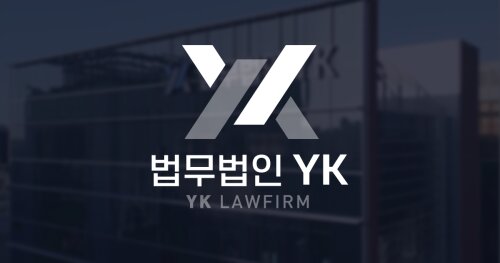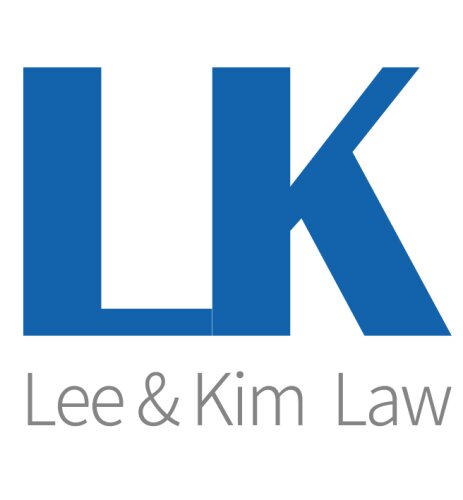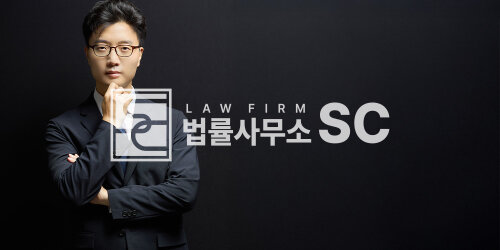Best Juvenile Law Lawyers in South Korea
Share your needs with us, get contacted by law firms.
Free. Takes 2 min.
Or refine your search by selecting a city:
List of the best lawyers in South Korea
About Juvenile Law in South Korea
Juvenile Law in South Korea is designed to address legal issues involving minors, who are typically defined as individuals under the age of 18. The legal framework is aimed at both protecting the rights of juveniles and addressing cases of delinquency. The primary goal is to rehabilitate rather than punish, emphasizing education and social reintegration. Courts may take a more lenient approach and prioritize guidance and support for juveniles, recognizing their capacity for change and development.
Why You May Need a Lawyer
Legal assistance is often necessary in Juvenile Law for several reasons. Firstly, when a juvenile is accused of committing a crime, clear understanding and representation are crucial to ensure fair treatment and adherence to legal rights. Secondly, cases related to child custody or welfare require careful navigation of the legal system to safeguard the best interests of the child. Lastly, legal guidance can provide families with support when dealing with governmental or institutional interventions concerning a juvenile's behavior or well-being.
Local Laws Overview
South Korea's Juvenile Law is rooted in several key legal provisions aimed at handling juveniles with care. The Juvenile Act provides the legal basis for addressing juvenile delinquency, focusing on education and correction rather than punishment. The Family Court oversees cases involving juvenile delinquents, with the power to reprimand, send them to juvenile reformatories, or place them under probation. Additionally, the Child Welfare Act plays a critical role in protecting minors from abuse and neglect, ensuring a supportive and nurturing environment for their development.
Frequently Asked Questions
1. What is the age of legal responsibility in South Korea?
The age of legal responsibility in South Korea is 14. Individuals under 14 cannot be prosecuted for criminal acts and are instead subject to protective measures by juvenile courts.
2. What happens if a minor commits a crime?
If a minor commits a crime, the case is typically handled by a Juvenile Court, which may impose corrective measures such as probation, attendance at a rehabilitation center, or community service, rather than criminal penalties.
3. Can juveniles be tried as adults in South Korea?
In certain severe cases, minors aged 16 and above can be referred to an adult court; however, this is rare and usually involves serious felonies.
4. What rights do juveniles have during legal proceedings?
Juveniles have the right to legal representation, a fair trial, and protection of privacy. The legal process is also designed to be more rehabilitative than punitive.
5. How does the juvenile justice system differ from the adult system?
The juvenile justice system focuses more on rehabilitation and education, while the adult system is more punitive. Juvenile records are also handled with greater confidentiality.
6. What is a juvenile reformatory?
A juvenile reformatory is an institution focused on rehabilitating young offenders through education and structured programs to enable their reintegration into society.
7. Are family members involved in juvenile legal processes?
Yes, family involvement is encouraged to provide support and collaboration in the juvenile's rehabilitation process.
8. How does the government prevent juvenile delinquency?
The government implements various programs that emphasize education, counseling, and community involvement to prevent juvenile delinquency.
9. What is diversion in juvenile justice?
Diversion is a process where juveniles are directed away from formal judicial proceedings towards education or community service programs designed for rehabilitation.
10. How can I find a lawyer specializing in Juvenile Law?
Specialized lawyers can be found through legal associations or online platforms that aggregate lawyers by specialty. It's important to seek those with experience in juvenile cases.
Additional Resources
Several resources can prove invaluable for those seeking legal advice or support in Juvenile Law in South Korea:
- The Korean Bar Association provides directories of qualified legal professionals.
- The Korean Legal Aid Corporation offers free or low-cost legal services to those in need.
- Government agencies like the Ministry of Justice offer information and resources on juvenile justice and welfare policies.
- Non-profit organizations focused on child welfare offer guidance and support for families and juveniles.
Next Steps
If you need legal assistance in Juvenile Law, consider contacting a lawyer with experience in this specialty to discuss your situation. Prepare documentation related to your case, and be open about your needs and concerns during consultations. Additionally, reach out to local legal aid services if financial constraints are present. Being informed and proactive is essential when navigating legal matters concerning juveniles to ensure the best possible outcomes.
Lawzana helps you find the best lawyers and law firms in South Korea through a curated and pre-screened list of qualified legal professionals. Our platform offers rankings and detailed profiles of attorneys and law firms, allowing you to compare based on practice areas, including Juvenile Law, experience, and client feedback.
Each profile includes a description of the firm's areas of practice, client reviews, team members and partners, year of establishment, spoken languages, office locations, contact information, social media presence, and any published articles or resources. Most firms on our platform speak English and are experienced in both local and international legal matters.
Get a quote from top-rated law firms in South Korea — quickly, securely, and without unnecessary hassle.
Disclaimer:
The information provided on this page is for general informational purposes only and does not constitute legal advice. While we strive to ensure the accuracy and relevance of the content, legal information may change over time, and interpretations of the law can vary. You should always consult with a qualified legal professional for advice specific to your situation.
We disclaim all liability for actions taken or not taken based on the content of this page. If you believe any information is incorrect or outdated, please contact us, and we will review and update it where appropriate.
Browse juvenile law law firms by city in South Korea
Refine your search by selecting a city.

















